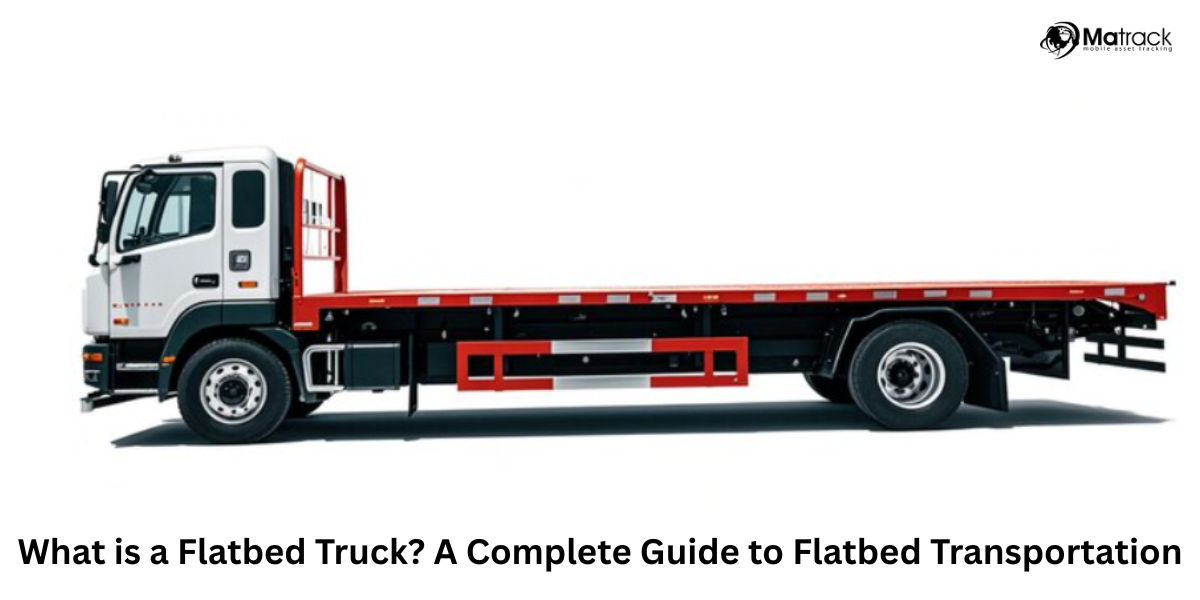Key Takeaways
- Becoming a truck driver in 2025 requires obtaining a CDL, completing an ELDT-approved training program, and following DOT regulations for safety and compliance.
- There are various trucking roles, including short-haul, long-haul, dedicated, and specialized drivers.
- Truck drivers earn based on experience, route type, and specialization, with salaries ranging from $50,000 to $80,000.
- Trucking offers career growth, from entry-level driving jobs to roles like owner-operator, fleet manager, or CDL instructor.
What Does a Truck Driver Do?
A truck driver is responsible for transporting goods, raw materials, or equipment safely and efficiently across different locations. They play a crucial role in keeping supply chains running by ensuring deliveries reach manufacturers, retailers, and consumers on time.
Types of Truck Drivers
Truck driving is a diverse profession with various roles based on distance traveled, cargo type, and work schedules. Each type of truck driver has unique responsibilities, with some spending weeks on the road and others returning home daily.
Short-Haul Truck Drivers
Short-haul drivers operate within a 150-500 mile range, typically staying within a few states. They have more predictable schedules, often returning home every night or every few days while making multiple stops. Know about: Short-Haul Trucking.
Regional Truck Drivers
Regional drivers operate within a 500-mile radius, usually covering several states in a specific region. They often have a more predictable schedule, with many returning home weekly while transporting various cargo types.
Local Truck Drivers
Local truck drivers handle deliveries within a 150-mile radius, making multiple trips per day. They usually work fixed shifts, allowing them to return home daily while transporting goods to businesses, stores, and customers.
Dedicated Truck Drivers
Dedicated drivers transport goods for a single company or client on the same route consistently. They enjoy steady work, predictable schedules, and familiarity with their delivery locations.
Tanker Truck Drivers
Tanker drivers haul liquids, chemicals, or gases, requiring extra safety training and a Hazmat endorsement. They must follow strict handling procedures to prevent leaks or spills, making their job highly specialized.
Refrigerated (Reefer) Truck Drivers
Reefer drivers transport temperature-sensitive goods such as food, medicine, and dairy products. They monitor refrigeration units to ensure products remain fresh during transport.
Flatbed Truck Drivers
Flatbed drivers transport oversized or irregularly shaped cargo that does not fit in standard trailers. They secure loads using straps, chains, or tarps to ensure safety on the road.
Hazmat Truck Drivers
Hazmat drivers transport hazardous materials like chemicals, flammable liquids, and explosives. They require special training and certifications to handle dangerous cargo safely.
Team Truck Drivers
Team drivers work in pairs, taking turns driving to keep the truck moving longer without exceeding Hours of Service (HOS) regulations. They cover long distances quickly, making them ideal for urgent deliveries.
What Are the Basic Requirements to Become a Truck Driver?
- Age: Must be at least 18 years old for intrastate (within the same state) driving and 21 years old for interstate (across state lines) trucking.
- Education: A high school diploma or GED is preferred but not always required.
- Driving Record: A clean driving record with minimal traffic violations is essential.
- Health and Physical Fitness: Must pass a Department of Transportation (DOT) physical exam to ensure fitness for long-haul driving.
- Legal Status: Must be legally allowed to work in the U.S. or the respective country of employment.
7 Steps to Become a Truck Driver In 2025
Becoming a truck driver requires proper training, licensing, and industry compliance. Follow these seven steps to start your trucking career successfully.
1. Get a Regular Driver’s License
Before applying for a commercial driver’s license (CDL), you must first have a valid regular driver’s license. This helps you gain basic driving experience and a clean driving record, which is essential for your trucking career.
2. Choose a Truck Driving School
Enroll in a certified truck driving school that provides hands-on training and classroom instruction. Choose a school that is approved under the Entry-Level Driver Training (ELDT) requirements to ensure you meet federal and state regulations.
3. Obtain a Commercial Driver’s License (CDL)
The most critical step to becoming a truck driver is obtaining a CDL, the licensing process has become more structured due to federal regulations.
Types of CDLs:
- Class A: Required for operating large tractor-trailers (e.g., semi-trucks, tankers).
- Class B: Needed for smaller trucks such as dump trucks and delivery vehicles.
- Class C: For vehicles carrying hazardous materials or passengers (e.g., school buses).
Steps to Get a CDL:
Obtain a Commercial Learner’s Permit (CLP):
- Pass a written knowledge test.
- Provide proof of identity, residency, and medical certification.
- Hold the CLP for at least 14 days before taking the CDL test.
Complete Entry-Level Driver Training (ELDT):
- Federal laws now require all new drivers to undergo ELDT-approved training programs before taking the CDL skills test.
- Training includes classroom education and hands-on driving experience.
Pass the CDL Skills Test:
- The test consists of three parts: vehicle inspection, basic control skills, and on-road driving.
Earn Additional Endorsements (Optional):
- Hazardous Materials (H) – For transporting dangerous goods.
- Tanker (N) – For liquid-carrying trucks.
- Doubles/Triples (T) – For towing multiple trailers.
Pay CDL Fees & Receive Your License:
- Fees vary by state but typically range between $75 – $200.
4. Gain Real-World Experience
After earning your CDL, start with an entry-level trucking job or an apprenticeship program. Many trucking companies offer on-the-job training for new drivers to help them gain experience with real cargo, routes, and road conditions.
5. Find a Truck Driving Job
Apply for truck driving jobs that match your experience and career goals. You can work as a local, regional, or over-the-road (OTR) driver, depending on your preference for travel and home time.
6. Stay Compliant with Industry Regulations
Truck drivers must follow Department of Transportation (DOT) regulations, including Hours of Service (HOS) rules, safety inspections, and drug and alcohol testing. Staying compliant ensures job security and a strong professional reputation.
7. Complete a Finishing Program
Some trucking companies require new drivers to complete a finishing program, where they receive additional training from experienced mentors. This helps drivers build confidence, improve skills, and transition smoothly into professional trucking.
Career Paths for Truck Drivers
Company Truck Driver
Company drivers work for a trucking company, receiving a steady paycheck, benefits, and structured schedules. They drive company-owned trucks and typically do not have to worry about maintenance, fuel costs, or insurance. This is the most common starting point for new truck drivers.
Read More: Best Trucking Companies Hiring Inexperienced Drivers
Owner-Operator
Owner-operators own and operate their trucks, allowing them to choose their loads, set their schedules, and negotiate rates. While this path offers higher earning potential, owner-operators are responsible for truck payments, fuel costs, maintenance, and business expenses.
Dedicated Route Driver
Dedicated drivers haul goods for a specific company or customer, running the same route consistently. This job offers predictable schedules, steady income, and frequent home time, making it ideal for those seeking stability.
Long-Haul (Over-the-Road) Truck Driver
Long-Haul truckers haul freight across multiple states or countries, spending weeks on the road at a time. While demanding, this job often comes with higher pay and opportunities for bonuses based on mileage and performance.
Specialized Freight Driver
Drivers can specialize in hauling hazardous materials (Hazmat), oversized loads, tankers, or refrigerated cargo. These jobs require additional certifications and training but offer higher salaries due to increased risks and responsibilities.
Freight Dispatcher or Logistics Coordinator
Experienced truck drivers can transition into freight dispatching, where they plan and coordinate routes for other drivers. They negotiate rates, schedule deliveries, and ensure shipments arrive on time, making it a great option for those looking to leave the road while staying in the industry.
Also know: How to Become a Truck Dispatcher
CDL Instructor or Trainer
Experienced truck drivers can become CDL instructors, training new drivers at truck driving schools. They can also work as driver trainers for trucking companies, mentoring new hires and helping them gain real-world experience.
Fleet Manager or Safety Compliance Officer
Fleet managers oversee a company’s truck operations, ensuring efficiency, driver performance, and maintenance schedules. Safety compliance officers enforce DOT regulations, monitor driver logs, and conduct safety audits to ensure legal compliance.
Check out: How To Start A Trucking Business
Frequently Asked Questions
How long does it take to become a truck driver?
Becoming a truck driver typically takes 3 to 8 weeks if you enroll in a CDL training program. However, gaining experience and obtaining endorsements can take a few months before landing a stable job.
How do truck drivers get paid?
Truck drivers are usually paid per mile, per hour, or per load depending on the type of job. OTR drivers often earn per mile, while local drivers are typically paid hourly.
What is the income of a truck driver?
A truck driver’s salary depends on experience, type of trucking, and routes covered. On average, truck drivers make between $50,000 to $80,000 per year, with specialized drivers and owner-operators earning more.
Is truck driving a good career in 2025?
Yes, truck driving remains a high-demand career with job stability and competitive pay. The increasing need for freight transportation ensures strong employment opportunities.
Can truck drivers choose their routes?
Company drivers typically follow assigned routes, while owner-operators and independent contractors have more control over where and when they drive. Some drivers can request dedicated routes for consistent schedules.
What are the working hours for truck drivers?
Truck drivers follow Hours of Service (HOS) regulations, limiting them to 11 hours of driving per day after a 10-hour rest break. Local drivers often work regular shifts, while OTR drivers spend days or weeks on the road.






